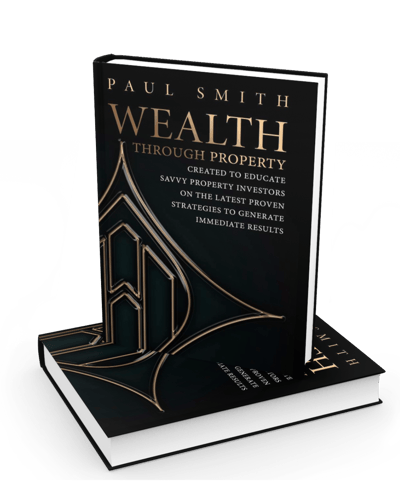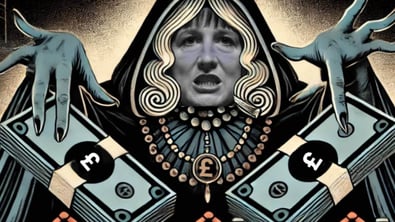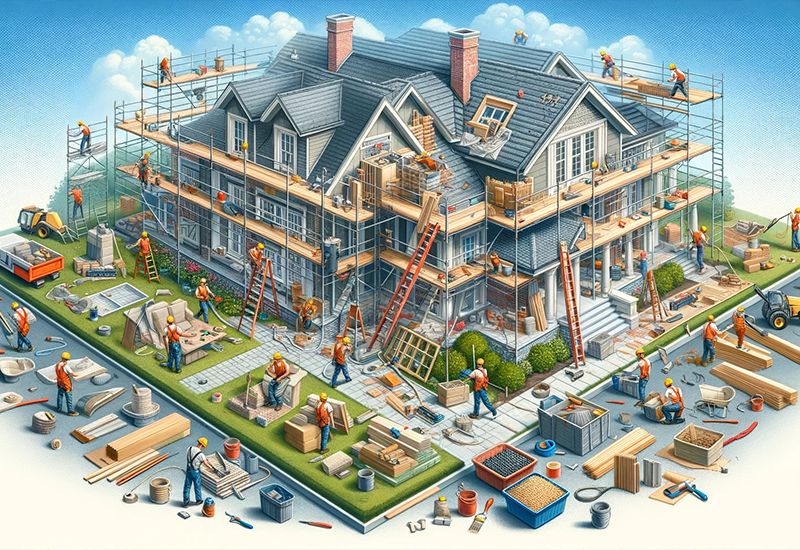Commercial property has been through an interesting few years, from the global economic crash’s impact on the high street to the pandemic which affected all businesses in different ways.
With rising inflation and interest rates affecting not just the UK property market but markets around the world, commercial property investors have a lot to consider when looking to the year ahead.
What could happen to commercial property in 2023? This blog post explains.
What is the current state of the UK economy?
UK economic conditions have shifted quite dramatically over the course of the last 12 months.
Most fixed-rate mortgages in the UK (57%) coming up for renewal in 2023 were fixed at interest rates below 2% – and those who are trying to secure a new fixed-rate deal may have to do it at a higher rate of interest.
The effective interest rate on outstanding mortgages with a fixed rate was 2.08% in November 2022, according to the Bank of England (BOE).
Should the interest rate on a £100,000 mortgage increase from 2% to 6%, assuming a 25-year capital and repayment mortgage, then the monthly mortgage repayment on the same mortgage would increase by £220 (from £424 to £644). However, assuming the same increase on a £300,000 mortgage, monthly repayments would rise by £661 (from £1,272 to £1,933).
The Bank of England’s Financial Stability Report suggests that mortgages on fixed rates set to expire by the end of 2023 are facing monthly repayment increases of around £250 upon refinancing to a new fixed rate.
These increasing costs for home mortgages are also paralleled for commercial mortgages.
What factors affect the commercial property market?
The commercial property market is influenced by the state of the economy, interest rates, income and changes in buyer demand. Commercial property is also determined by available supply. Periods of rising demand and limited supply will result in rising house prices and rising rents.
Factors that impact demand for the commercial property include:
State of the economy: There are several considerations when evaluating the state of the economy, such as gross domestic product (GDP), employment rate, inflation rate, and other economic factors such as tax rates etc.
Size: The fair market value of a property is often determined by its size. Buildings are measured in square feet, and to determine the price of the property, you have to take the selling price and divide it by the square footage. It is often the case that the larger the property, the more money is received by selling it.
Curb appeal: The attractiveness of the property as viewed from the outside is one of the most significant factors to affect the real estate’s value. This means that peeling paint, cracked concrete or a combination of factors can decrease the property’s value. The need for beautification and repairs to make their building more visually appealing often turns people away from buying a property, as it could cost them a lot of money to remedy these issues. To compensate, they may put in a lower offer than they were initially willing to pay so that they have funds left over for repairs. Depending on your level of ability, this could be done by a trade professional or by yourself.
Problems and repairs: Leaky roofs, clogged or busted plumbing and damaged HVAC systems are some of the most common problems in commercial properties. Buyers will consider the amount of work they need to do to make the property liveable, as well as the cost of repairs. People can be put off if the repairs will cost them a great deal of time, money and effort.
Age and condition: These are important factors for commercial property as people are less hesitant to buy a building that is brand new, compared to a building that is twenty years old. Older buildings often come with problems. This could include appliances that are past their life expectancies (e.g. air conditioning), foundational issues, and out-of-date construction.
Renovation potential: Many buyers look for the potential of renovations when considering a property. People appreciate the ability to add extra rooms, patios, bathrooms, office space, and other amenities. As businesses grow larger, they may want to increase the size of the space without buying an entirely new building.
Interest rates: This is a huge factor to consider when putting the property up for sale. If the Bank of England decides to increase interest rates for loans, mortgage lenders are likely to follow suit. The higher the interest rate, the more difficult it can be for individuals and businesses to afford repayments, which can put people off.
If interest rates are lower, then potential buyers may be more willing to purchase a more expensive property.
Supply and demand: If there is an influx of buyers but not enough buildings to go around, then prices will increase. Supply can be solved by building new properties and splitting larger properties into smaller units.
Money supply: As most people purchase properties by utilising mortgages, much of the market relies on the banks. The more money that is available in the economy (led by the government’s fiscal and monetary policy), the more likely it is that banks will lend out money to buyers. If the supply of money is lower, then it could be more difficult to acquire mortgages – and as an extension more difficult to sell the property.
Investors and speculators: There are people in the market for spotting perceived threats and opportunities. The threats include changes to property taxes and government regulations regarding real estate loans. As a general rule of thumb, the presence of more investors and speculators will increase the property’s value.
Building material and labour costs: As the prices of building materials, like steel increase, so do the construction costs. This is also true of labour costs, as if there is a shortage of manpower and resources, the prices will go up, meaning it is more expensive for people to perform construction on properties. The increased resale price of these properties therefore make up for the increased construction costs.
How will the economy effect the commercial property market this year?
Commercial property is currently facing a mixed picture. On the one hand, the business community is thriving, with the number of job vacancies outpacing the number of people unemployed. Meanwhile external factors threaten the market.
According to Greg Reimers, Real Estate Banking Northeast Market Manager for JP Morgan spoke about the correlation of a recession and commercial property decline:
“A recession has the potential to reduce demand across all real estate asset classes. A continued increase in short-term interest rates, the cost of borrowing will increase, sharply decreasing activity in the large fixed-asset sectors. Commercial mortgage activity may also slow as refinancing at higher rates becomes increasingly unattractive.”
Roger Daniel, President and Founder of Daniel Management Group (DMG) added, “Inflation tends to drive rents higher. Rising costs and delays on new construction tend to constrain supply, which also increases rent on existing properties.”
How will commercial property sectors fare in 2023?
Many of the macro-economic changes effect the commercial property sector as a whole, but the individual sectors will also be impacted differently.
- Industrial properties
According to JP Morgan, “The ongoing demand to get products in consumers’ hands as quickly as possible means the industrial asset class has continued to perform well. But in a recession, industrial properties associated with elastic goods (goods in which demand is heavily impact by changes in price and are unlikely to be necessities) may feel the effects of reduced consumer spending.
“As consumer demand wains, the industrial sector as inventories are managed down and the demand for industrial space decreases,” says Reimers.
- Retail properties
While some elements of the retail sector is doing well, other aspects are struggling. Al Brookes, Head of Commercial Real Estate at JP Morgan Chase says “a recession ould put them through a difficult economic period.”
He added that “the evolution of omnichannel and experiential retail will keep brick-and-mortar retail relevant for the foreseeable future.”
- Office buildings
Officers are also evolving as employers try to find the best balance of in-person, hybrid and remote work. Tom LaSalvia, Senior Economist and Head of Narrative Analytics at Moody’s Analytics CRE said:
“The trial and error of varying work arrangements will be more influential for offices than a short, mild recession. But a recession could hurt hiring and might cause some firms to delay plans to build or expand offices, at least in the near future.”
Reimers added, “An already struggling office sector is likely to face additional challenges if companies significantly reduce headcount further reducing the demand for office space.”
What are the opportunities for commercial property investors?
The current market conditions provide opportunities for commercial property investors.
Due to the current rising commercial mortgage rates and potential recession hitting certain sectors, expansion plans may be scaled back by businesses. This is great for investors as the reduced demand can make the price of commercial properties cheaper.
As seen with the high employment rate, there is still a lot of positive news for the economy and commercial tenants can still be found.
There is also a sign that many companies are evaluating their remote working policing and thus office interest could increase.
Some industries are continuing to grow at a strong rate. Many property experts believe that any economic downturn is likely to be short-term.
To make the first steps on your property journey, read this free Wealth Through Property e-book.
For more information call us at 01302 897131 or email office@touchstoneeducation.co.uk.











